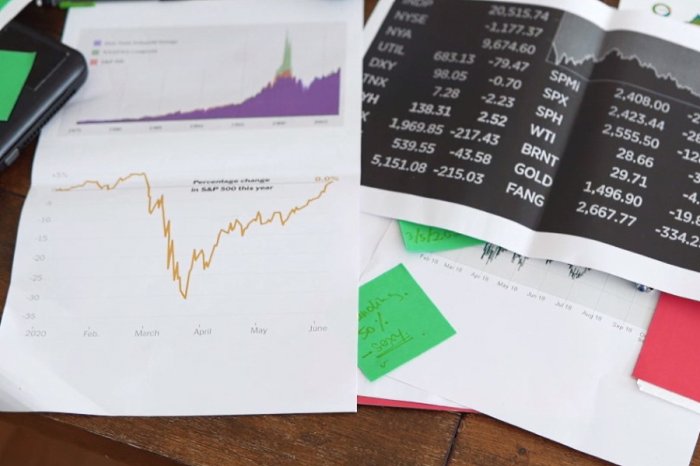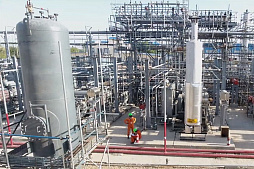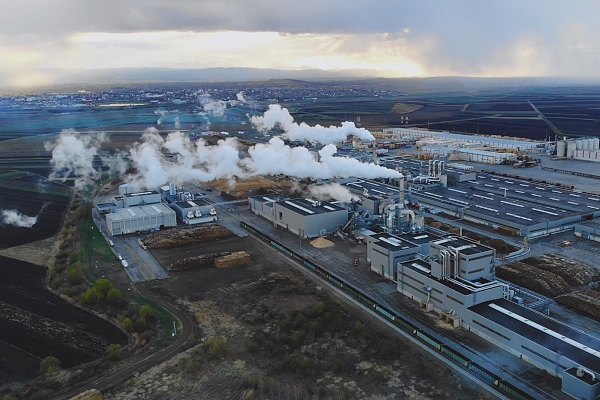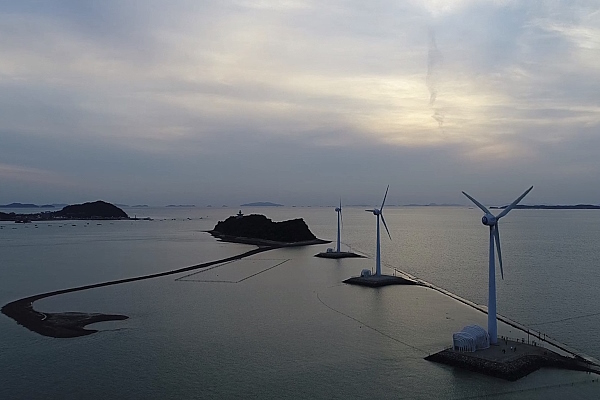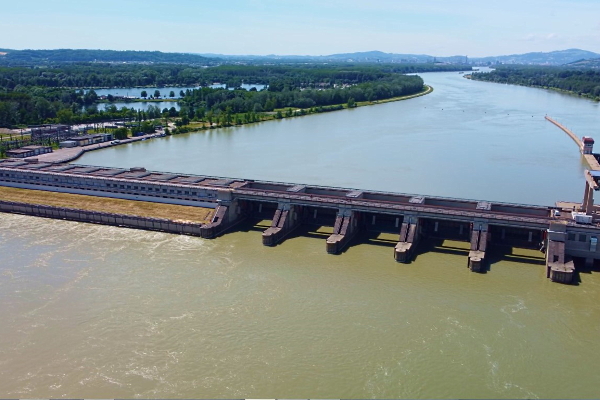After receiving the necessary documents (application form and project presentation), our team will try to review your request as soon as possible, and leading experts will offer the best options for project funding.
In order to effectively implement investment projects all over the world, a project financing mechanism is used, which allows to concentrate the resources and competencies to ensure transparency of the use of funds.
As many years of experience show, project finance services in the Philippines contribute to the most rational distribution of risks between project participants, protecting their interests by allocating project assets on the balance sheet of a specially created project company (SPV).
In this regard, project finance mechanisms are important for ensuring economic growth and investment activity in such important sectors of the Philippine economy as energy, infrastructure, and agriculture.
ESFC Investment Group provides long-term financing for large projects from 50 million euros on favorable terms.
As your reliable financial partner, we are ready to offer a full range of professional services related to the implementation of capital-intensive investment projects in the Philippines and other countries of Southeast Asia.
Prospects for foreign investment in the Philippines
The Philippines, with a population of over 108 million, is the second largest project finance market in the region after Indonesia.The country is pursuing numerous capital-intensive projects and offers great opportunities for foreign investment in various areas, but investors should understand important characteristics of the local community and its needs.
Filipino society is clearly divided into two distinct groups.
The first group consists of the elite with high purchasing power and the emerging middle class, which makes up approximately 20-25% of the total population.
This group is concentrated in urban areas of Manila and other major cities and follows a Western consumption pattern. The second group, which includes the majority of the population, lives in difficult conditions, and their consumption is limited to basic necessities.
Consumption is seen as a sign of social status, so the influence of advertising is strongly felt here.
The Philippine market is one of the most “western” in the region in sectors such as food or clothing, and consumers are reacting to price and novelty as the most influential factors.
In terms of exports, the local market needs specialized equipment, automotive components, quality food and wine, as well as clothing, footwear and luxury goods. The peculiarities of the local consumer largely determine the field of activity of joint ventures.
The public sector with low incomes does not have high purchasing power (only 17% of GDP in 2013).
In recent years, the Philippines has launched some major infrastructure projects through public-private partnerships (PPPs), and this is a promising area for foreign investors.
The main concentration of businesses in the country is located in the Manila region, where financial institutions, government agencies, the stock exchange, embassies and many foreign companies established in the country are concentrated. Cebu is the second city in the country in terms of economic importance and the third most populous after Davao, although they are not comparable to Manila either in terms of population or volume of trade.
The Philippines is the second largest country in ASEAN after Indonesia, ahead of Vietnam and Thailand. However, in recent decades, the Philippines has lost its role in the region, as back in the 1960s, the country was the second largest economy in Asia after Japan.
Currently, GDP per capita in the Philippines is below the ASEAN average.

European and American companies have great opportunities for public-private partnership infrastructure projects in the Philippines, especially in partnership with large local companies. Project finance services in the Philippines are in high demand, and the lack of highly qualified personnel in this area is constantly felt by the local business.
Construction and engineering contractors as well as consulting firms can benefit from this emerging market with great potential.
In addition to infrastructure and transportation, the water sector and waste management offer great business opportunities in the Philippines.
Renewable energy sources may also be of interest to foreign companies, but the approved green tariff may somewhat limit the potential of the sector (with the exception of hydropower). Energy in general for the Philippines is a business that will be of great importance for many years to come.
Of greatest interest to Western companies are those sectors that provide a competitive advantage due to their favorable cost-to-skill ratio. Foreign investors are also traditionally interested in project finance in sectors where the Philippines has a comparative advantage in terms of geography, natural resources, favorable legislation, or promising development prospects.
Project finance services in the Philippines are in high demand in the following areas:
• Large projects in infrastructure, transport, water supply and waste management within the framework of newly established PPPs.
• Agriculture, food processing and innovative processing of agricultural waste to produce food or energy (including biofuels).
• Construction of power plants, including the development of large wind farms and other renewable energy sources.
• Tourism projects, especially adventure tourism or specific tourism programs (low tourist flow, poor infrastructure and transport links make it difficult for mass tourism).
The World Bank, Asian Development Bank, European Commission, numerous United Nations agencies and overseas financial institutions offer major development programs in various sectors of the Philippine economy.
These are increasingly diversified operations where European, Chinese, Middle Eastern and American companies can arrange PF with local or foreign companies.
Japan is currently the largest donor country in the Philippines, and its multimillion-dollar loans are focused on local roads, bridges, airports, power plants, and agriculture. The United States is in second place among economic partners. Canada, Australia, China, Singapore, as well as European countries occupy important places in this list.
The essence of project finance services and their role for the Philippines
Increased competition among financial institutions in the Philippines and an expanding range of business opportunities are driving the development of project finance.In recent years, the participation of banks in project finance has significantly expanded, in which banks independently develop an investment project or provide clients with professional advice, bear the costs of project implementation, and also become co-owners of new facilities.
Project finance services in the Philippines today stand out as a full-fledged activity of financial institutions that stimulates the growth of the local economy and makes a significant contribution to the development of energy, industry, agriculture, tourism and other important sectors.
In the most general interpretation, project finance is a type of financial relationship within the framework of organizing and financing an investment project using various financial instruments.
The key point of the PF is that the sources of debt repayment are the cash flows generated by the project and its assets.

Project finance in the Philippines is primarily used for infrastructure development, environmental projects, energy facilities, as well as the social sector, industry and agriculture. Most of the financed projects are characterized by high cost and long payback periods, but are of strategic importance for the country. Usually these are complex projects that use mechanisms such as long-term bank loans, direct equity investments, leasing, etc.
Project finance services are often used in international projects involving partners from the USA, Japan, China, Malaysia, Singapore and the EU countries.
Project finance allows the Philippines to efficiently implement large projects, balancing the interests of all participants and using advanced financial instruments.
Table: General principles for the use of project finance in the Philippines.
| Principles | Description |
| The principle of increased risk of project finance. | This principle requires a rational distribution of risks among a wide range of project participants. All project risks, in turn, require careful monitoring and guarantees. Since the business environment in the Philippines is much less favorable than in developed countries, financial institutions pay particular attention to the preliminary analysis of the project before entering into financing contracts. The increased risk also means an increase in the bank's margin for the entire debt service period. |
| Market principle. | This principle requires a financial institution to conduct a detailed analysis of the market for future products (services) when concluding a credit transaction. This market analysis is carried out in order to determine the dynamics of prices for the period of operation of the facility. As a rule, a comparative analysis in this aspect is carried out according to the scenario of the investor (customer), the pessimistic scenario of the bank, as well as according to the professional scenario prepared by independent experts. |
| The principle of adequate funding. | Project finance is characterized by a fairly high ratio between equity and borrowed funds, which fluctuates depending on the industry (for example, 20:80 or even 10:90). If the investment project is implemented in the public sector and plays a strategic role for the Philippines, government support for the investment may be applied, including through government participation in the equity capital of the future enterprise. |
| Principle of limited liability of the client. | This principle follows from the definition of project finance, according to which debt repayment occurs through the future cash flows of the project, and the responsibility of the client initiating the project is determined by the amount of his own contribution to the project. As a rule, the participation of the initiator is limited to his role in a special project company (SPV), acting directly as a borrower. |
| Investment guarantee principle. | Given the high risk of long-term projects in developing countries, guarantee is of great importance when such projects are implemented in the Philippines. The purpose of such guarantees is to insure the debt obligations of an investment project for the entire period of its life cycle. |
| The principle of gradual debt recovery. | Project finance is based on the gradual payment of debt in accordance with the schedule, which corresponds to the life cycle of the investment project so. This means that debt repayment begins when a certain level of production capacity is reached, and the rate of debt repayment is proportional to the growth rate of production. |
Large-scale reforms and projected future economic growth are closely linked to the development of project finance services in the Philippines.
PF as a way to finance real investments has established itself as a fairly successful way to raise funds to finance investment projects in developed countries.
Now project finance is one of the most common forms of organizing investment attraction in the real sector of the economy in both industrialized and developing countries of Southeast Asia.

However, there are a number of factors that make it difficult to use project finance services:
• Insufficient level of development of sources of debt financing in comparison with Japan, the United States and other developed countries. The domestic financial market does not have sufficient liquid funds for large-scale financing of capital-intensive projects, especially large ones with long implementation periods.
• The Philippines lacked sufficient experience in project risk assessment. Insufficiently developed local legislation and a shortage of experienced project finance specialists, especially for large investment projects with high risk.
Despite a number of problems, the Philippine authorities are consistently moving towards improving local legislation and improving the investment climate.
Active actions aimed at reducing the risks of project finance, providing government guarantees to foreign companies and developing insurance contribute to attracting external financing for strategic projects in various areas.
The participants in the international system of project finance are international and regional financial institutions, development agencies, transnational corporations, transnational banks, large international insurance syndicates. Many foreign players today are interested in the implementation of large projects in the Philippines.
The opportunities for domestic lenders and institutional investors (financial and industrial groups, investment funds, holdings, banks or their associations, financial and leasing companies, venture capital funds) are also growing.
If you are planning a major investment project in the Philippines, contact the ESFC Investment Group financial team.
We guarantee comprehensive professional support, including long-term financing, consulting, and advanced engineering and technical solutions.








